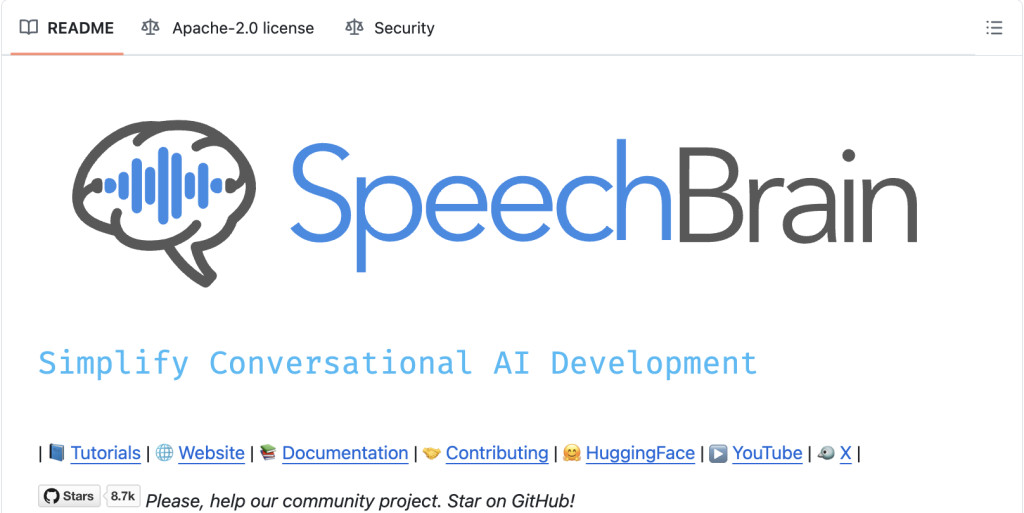Speech and audio processing is crucial in models involving speech data, particularly in handling complex tasks such as speech recognition, text-to-speech synthesis, speaker recognition, and speech enhancement. The key challenge lies in the variability and complexity of speech signals, which are influenced by factors like pronunciation, accent, background noise, and acoustic conditions. Additionally, the scarcity of annotated speech data and the computational cost associated with large-scale speech models further complicate the development of accurate and efficient speech processing systems.
Current methods for speech and audio processing rely on various machine learning and deep learning models. Modern systems increasingly use neural networks due to their ability to capture complex patterns in data. While popular frameworks like Kaldi, ESPnet, and OpenSeq2Seq are widely used, they often lack flexibility, modularity, or ease of experimentation with different architectures and techniques.
A team of researchers proposed a PyTorch-based speech toolkit, SpeechBrain, designed to overcome these limitations. Built on top of PyTorch, SpeechBrain offers a highly modular and flexible framework for developing speech and audio processing models. Its modular design allows users to combine components to create custom pipelines while experimenting with different architectures and techniques. It supports a variety of speech-related tasks, including automatic speech recognition (ASR), speaker verification, speech enhancement, and speech separation. This makes it an all-encompassing toolkit for researchers and developers working on state-of-the-art models.
The SpeechBrain toolkit leverages PyTorch’s efficient tensor operations and GPU acceleration, enabling faster training and inference for speech processing models. It includes essential components like data loaders for speech data, modules for building neural network architectures, optimizers for parameter updates, schedulers for adjusting learning rates, and metrics for performance evaluation. At its core are the Brain classes, which serve as high-level abstractions for defining and training models. These abstractions simplify the process of creating and optimizing custom models.
SpeechBrain has been evaluated on several benchmarks for speech processing tasks and has demonstrated state-of-the-art results. The framework allows users to experiment with different neural network architectures and techniques, providing the flexibility to adapt models to specific tasks and datasets. Additionally, SpeechBrain’s modular structure encourages reuse and optimization of components, making it easier to design more efficient pipelines for speech recognition, text-to-speech synthesis, speaker recognition, and other related tasks.
In conclusion, SpeechBrain addresses the complexities and challenges associated with modern speech and audio processing by providing a flexible and modular toolkit. Its integration with PyTorch makes it efficient in terms of performance, allowing for rapid experimentation and development of advanced speech models. The combination of its modular design, flexibility, and GPU acceleration support positions SpeechBrain as a valuable resource for researchers and developers looking to push the boundaries of speech-related tasks.
Check out the GitHub. All credit for this research goes to the researchers of this project. Also, don’t forget to follow us on Twitter and join our Telegram Channel and LinkedIn Group. If you like our work, you will love our newsletter.. Don’t Forget to join our 50k+ ML SubReddit
Interested in promoting your company, product, service, or event to over 1 Million AI developers and researchers? Let’s collaborate!
The post SpeechBrain: A PyTorch-based Speech Toolkit appeared first on MarkTechPost.
Source: Read MoreÂ


